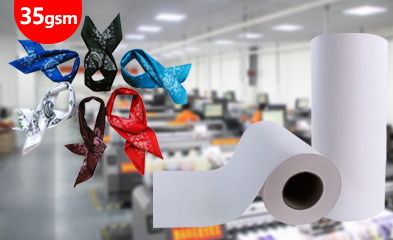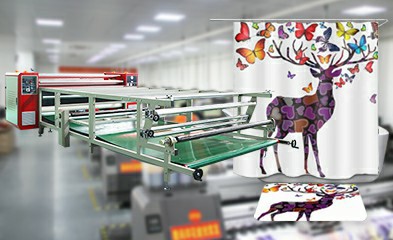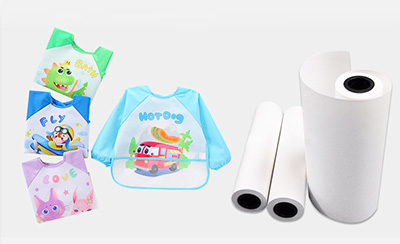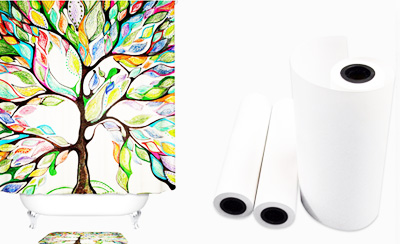What's the difference between heat sublimation paper and thermal transfer paper?
HOT SALE
APPLICATION
Contact:Whatsapp:8618268932884 Email:helen.cf@changfatextile.com
The two processes of thermal transfer paper and heat sublimation paper actually share the same origin and belong to the same printing process. The only difference is that the effect of heat transfer paper is more textured, while the effect of thermal sublimation paper is smoother.
Heat sublimation paper: Two conditions must be met for the use of heat sublimation paper. Any printer with a micro piezoelectric nozzle can be used, such as Epson, Roland, Mutoh, Mimaki, and other models. Heat sublimation transfer ink must be used. This ink, made of disperse dyes, will produce sublimation and dye the substrate at the transfer temperature.
Thermal transfer paper: Various patterns are printed on a special type of paper using thermal transfer ink, and then the patterns are transferred to the product through temperature and pressure. This special paper used in the thermal transfer printing process is called thermal transfer paper.
Heat sublimation paper is a type of coated paper that transfers ink onto objects through high-temperature sublimation. On the other hand, thermal transfer paper involves ink penetrating through a high-temperature permeable adhesive layer, which then penetrates into the fabric through high heat. Therefore, heat sublimation paper has good breathability, while thermal transfer paper has a harder texture but is not breathable.
What are the differences between thermal transfer paper and heat sublimation paper? Details are as follows:
1.Principle Of Transfer Printing
Thermal transfer paper: Colors are absorbed and fixed through the ink-absorbing layer, and then adhered to the transfer medium through the adhesive layer. Therefore, ordinary ink can be used, and there are no special requirements for the transfer medium.
Heat sublimation paper: Colors are absorbed through the ink-absorbing layer, and then the ink is evaporated through heating. At a temperature of around 180 degrees, the molecules of the vaporized ink enter the open fiber pores of the transfer medium under certain high-temperature conditions, transferring the color onto it. Therefore, heat sublimation ink is required, and there are also requirements for the transfer medium.
2.Advantages
The process of thermal transfer paper is simple, requiring no plate-making and allowing direct printing output with a short process flow. It is suitable for use on any textile that can withstand high temperatures, such as pure cotton or polyester-cotton blended fabrics, cotton canvas, and so on.














